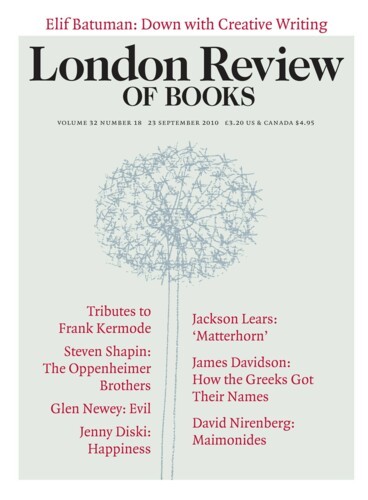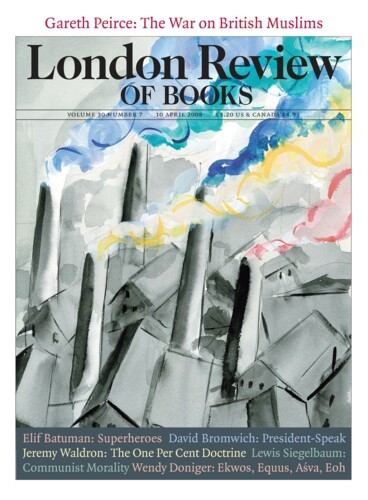Diary: Pamuk’s Museum
Elif Batuman, 7 June 2012
In 2010, I moved from California, where I had lived for 11 years, to Turkey, where I had never stayed longer than a month or two. I had been offered a job as writer in residence at a private university in the forest on the northern edge of Istanbul. When I got there, I found out that the university had no writer in residence programme. It didn’t even have a writing programme. There was just me. The two living beings I saw with the most regularity were a campus groundsman, who always seemed to be standing in the bushes when I left the house, and an obese one-eyed black cat.




